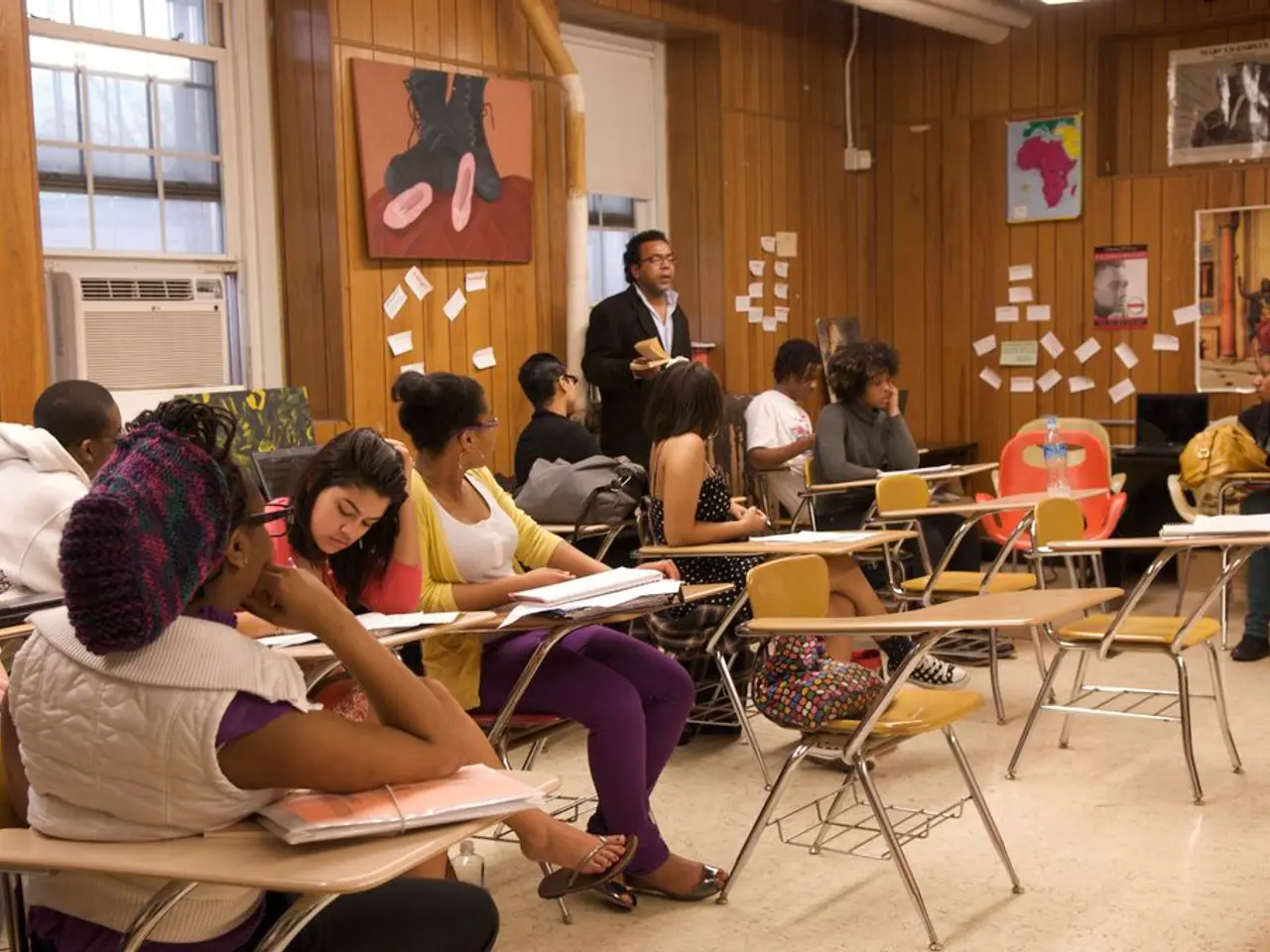Improving Capabilities via Collaborative Career Enhancement Training
Participatory Professional Development (PD) is revolutionizing the educational landscape, offering a collaborative and inclusive approach to educator training. This innovative model prioritizes the participation of all stakeholders, fostering a community focused on collective growth and improvement.
Key Principles of Participatory PD
At the heart of Participatory PD are principles such as co-creation of knowledge, community and collaboration, inclusivity, and reflection. Integration of technology further expands its reach, allowing for personalized learning journeys that accommodate various professional needs and preferences.
Best Practices in Participatory PD
Implementing Participatory PD in educational institutions involves adopting best practices that create responsive, collaborative, context-sensitive, and sustained learning environments. Key practices include:
- Needs-Driven and Context-Sensitive Design: PD initiatives should be tailored to reflect teachers' individual needs, school contexts, and specific student learning goals to maximize relevance and impact.
- Collaborative Learning Communities: Establishing Communities of Practice (CoPs) or Professional Learning Communities (PLCs) supports continuous dialogue, peer collaboration, shared problem-solving, and collective innovation among educators.
- Active and Experiential Learning: PD should incorporate hands-on activities, role-playing, inquiry-based tasks, and cycles of reflection that engage teachers as active learners and promote the development of adaptive expertise.
- Diverse Stakeholder Involvement: Including teachers, school leaders, policy-makers, families, and community members creates richer, culturally affirming professional development that builds trust and respects diverse experiences.
- Ongoing Support and Mentorship: Sustained improvement requires administrative support, mentoring especially for novice teachers, and regular evaluations to ensure strategies are effectively implemented and refined over time.
- Alignment with Equity and Inclusion: Professional development should develop mindsets and skills that foster equitable educator practices, affirm student identities, and build partnerships reflective of cultural contexts.
- Flexibility and Responsiveness: Utilizing varied formats, including online PD with personalized learning options, while ensuring engagement and cultural fit, accommodates different teacher schedules and learning preferences.
Addressing Resistance to Change
Resistance to change in educational institutions is a common challenge. To overcome this, institutions may consider developing targeted training, creating flexible schedules, building a supportive culture, and endorsing systematic approaches to professional development.
The Role of Technology in Participatory PD
Technology plays a significant role in Participatory PD, facilitating communication, enabling access to diverse resources, and fostering immediate access to peer support. Digital tools like video conferencing software and collaborative applications enhance real-time interaction and feedback, promoting an engaged learning environment.
In conclusion, Participatory PD offers a promising approach to educator training, blending targeted, collaborative, and culturally responsive learning experiences with sustained support and stakeholder engagement within a framework that promotes equity and adaptive expertise in educators. By prioritizing flexibility, active engagement, and shared learning, Participatory PD empowers educators to enhance their skills, adapt to changes in educational landscapes, and drive improvements in teaching quality and student outcomes.
E learning is a valuable tool in Participatory PD, providing personalized learning opportunities that cater to various educator needs and preferences. Collaboration among educators, supported by e learning, contributes to fostering shared personal growth and professional development, aligning with the principles of co-creation of knowledge and active and experiential learning.
The integration of diverse stakeholder involvement, such as families, community members, and school leaders, in Participatory PD e learning platforms, facilitates a culturally affirming and inclusive environment for collaborative learning and collective improvement, mirroring the inclusivity and alignment with equity and inclusion principles of Participatory PD.




